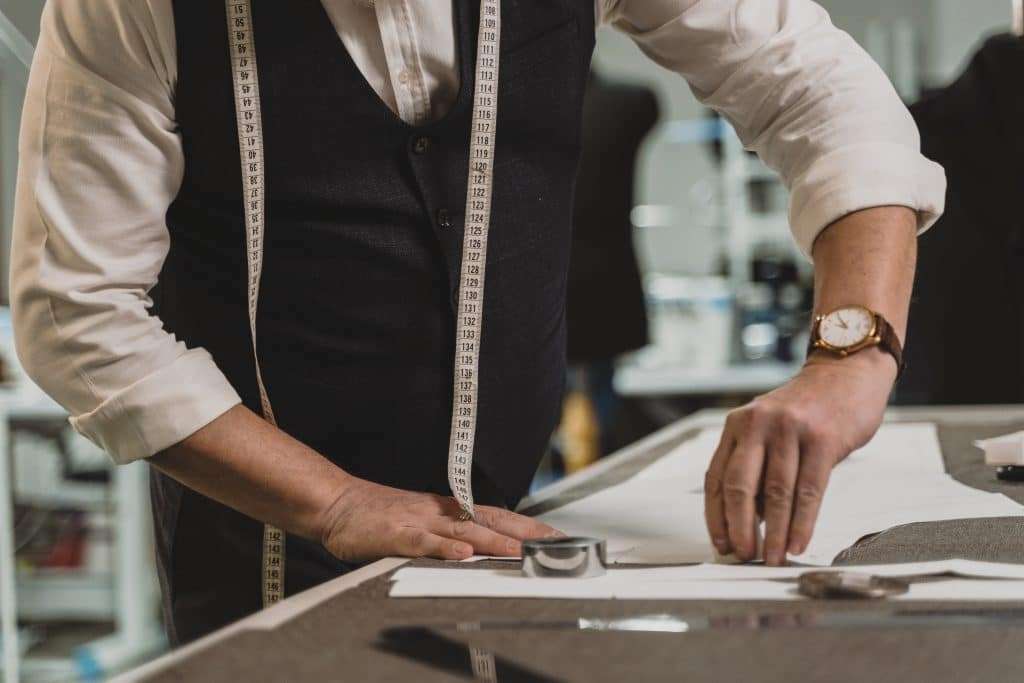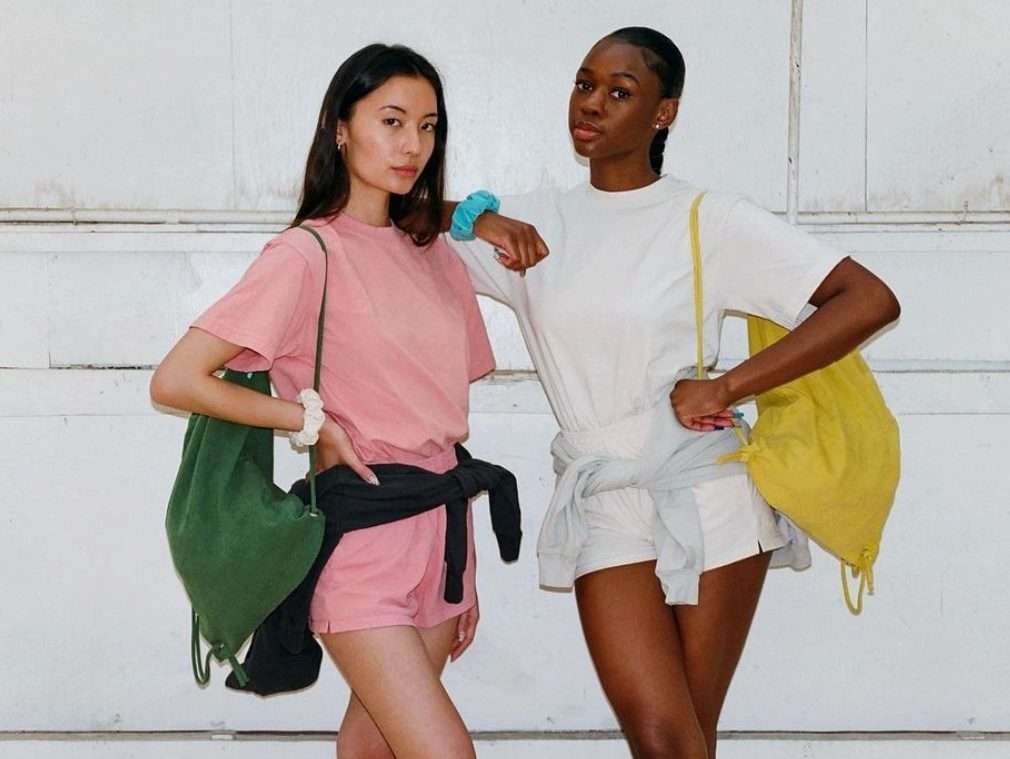Sustainable clothing is booming in California and is at the heart of the Made in California movement. Here’s what you need to know.
In a country that’s often divided over any number of issues (take your pick), there’s a commonality in rallying around the Made in America movement. Nowhere is this needed more than in the fashion sector weighed down by challenges ranging from carbon emissions, water usage, and labor issues, to name a few.
Just half a century ago, more than 75 percent of the clothing purchased in the U.S. was made on American soil. That dropped to 29 percent by 2020. Despite America’s love for, well, America, that dropped dramatically over the last two decades — now, only about 2 percent of the 20 billion apparel items purchased by Americans every year is actually made in the U.S. today.
According to the Bureau of Labor Statistics, 750,000 clothing manufacturing jobs disappeared from the U.S. between 1990 and 2011 as globalization moved production to cheaper factories, mostly in Asia. China now produces 65 percent of textiles exported around the world.
Made in America
Despite decades of setbacks, the Made in America movement is picking up momentum once again. Once-thriving garment districts are reclaiming their history. New York City recently announced the return of its garment district with the launch of the Slow Factory.

In fact, a survey last year found 74 percent of consumers check the country of origin labels before making a clothing purchase.
Forty-five percent of consumers say they are more likely to always or usually purchase ‘Made in the USA’ clothing labels; 47 percent say knowing whether or not an item is made in the U.S. is an important factor in making purchasing decisions.
That’s higher than those who cited sustainable (30 percent), environmentally friendly (24 percent), and recycled (20 percent). Twenty percent of consumers say they are also more inclined to associate country of origin with quality.
Made in California
California has seen a general push toward becoming more eco-friendly across different industries. It has primarily been seen in urban planning and renewable energy for commercial and residential zones, but the sentiment is trickling over to business.
So far, Irvine, San Francisco, and San Diego are leading the charge as the greenest cities in the states. The majority of businesses are diverting their trash into recycling or compost, the sale of single-use plastics has been limited, and public transportation vehicles are primarily using alternative fuels.
In the world of fashion, this has translated into a growing circular fashion movement in the Gold Coast. The goal is to close the loop and end fast fashion practices that are harmful to the environment. There are also efforts to ban unethical fashion such as fur. And for entrepreneurs looking to join in the movement, how easy is it to start a sustainable fashion company in the state?
The market is definitely there, as a Genomatica survey has found that 1 in 3 U.S. consumers want to shop at a sustainable clothing store but don’t know where to find one. The same data show that awareness of the issues in the fashion industry is high, but many consumers don’t fully understand what makes a brand sustainable.
Made in Los Angeles
Those consumers need to look no further than Los Angeles with its booming fashion district that’s at the heart of the Made in America movement. And many of the city’s labels are doing it sustainably, too.
Take Reformation, the celebrity-loved sustainable fashion brand that makes all of its clothing from low-impact materials, rescued deadstock fabrics, and repurposed vintage clothing right in Los Angeles.

Mate the Label’s organic basics and essentials are all made in Los Angeles. The brand’s commitment to sustainability and toxic-free garments makes it a must-shop, especially if you’re still committed to your Covid loungewear (as you should be).
There are stylish, sustainable garments from Southland-based Whimsey & Row, For Days, and Graceful District, to name a few more. But the list is long and growing.
Building a green brand from the ground up
For nascent designers or labels, hink about how much your emissions are based on how you will produce products, cater to services, or run operations. Find ways to educate your employees, offset emissions, conserve energy, and minimize your waste from the very beginning. If you look at the secondhand marketplace The RealReal, consumer habits show a trend of redefining luxury and value to cater to a circular economy. As those with buying power become more willing to invest in well-made and aged items, there is an increase in practical sustainability.
Meeting California compliance
One reason to consider a sustainable company launch in California is that the state genuinely pushes for it. The state is already known as one of the most rigorous in terms of regulation, so simply taking the necessary steps to meet compliance will already have you on your way to being kinder to the planet.
To meet the strict requirements in the state, you’ll want to establish your operating agreement, get your EIN, and find the best registered agent in California to help you keep up with new waste legislation. The state is actively adding new rules, so you will want a solid agent that can keep your company on top of regulations and initiatives. Earlier this year, the Responsible Textile Recovery Act aimed to require apparel producers to directly manage the collection and recycling of their goods. Not only will this help you stay in good legal graces as a business but also help you stay true to your sustainable goals.
As we’ve noted, California is already pretty strict with its permits and certification. For sustainable brands, there is also the matter of getting certification to prove your sustainability. A lot of these aren’t actually required to operate, but it won’t hurt to maintain good practices and add to your brand appeal.
Orange County previously recognized Earth Friendly Products as a leader in sustainability. They won for their platinum-level zero waste certification and carbon neutrality. You can look at certifications from B Lab, NSF International, Better Cotton Initiative, ECOCERT, and more to establish your credibility and keep high standards for green fashion.
Supply and packaging
You will also need to consider your supply chain from start to finish. Make sure you are working with suppliers or vendors that also stick to ethical and sustainable practices. From there, stick to eco-friendly materials for your packaging so you don’t waste the good work you started out with.
You should also be mindful of how your work environment is, as your practices, energy usage, and waste management will also apply. A good benchmark to follow is the Climate Action Corps’ efforts, as this coalition has advocated for climate policy and mitigation of emissions for major brands like L.L. Bean and The North Face.
Related on Ethos:


